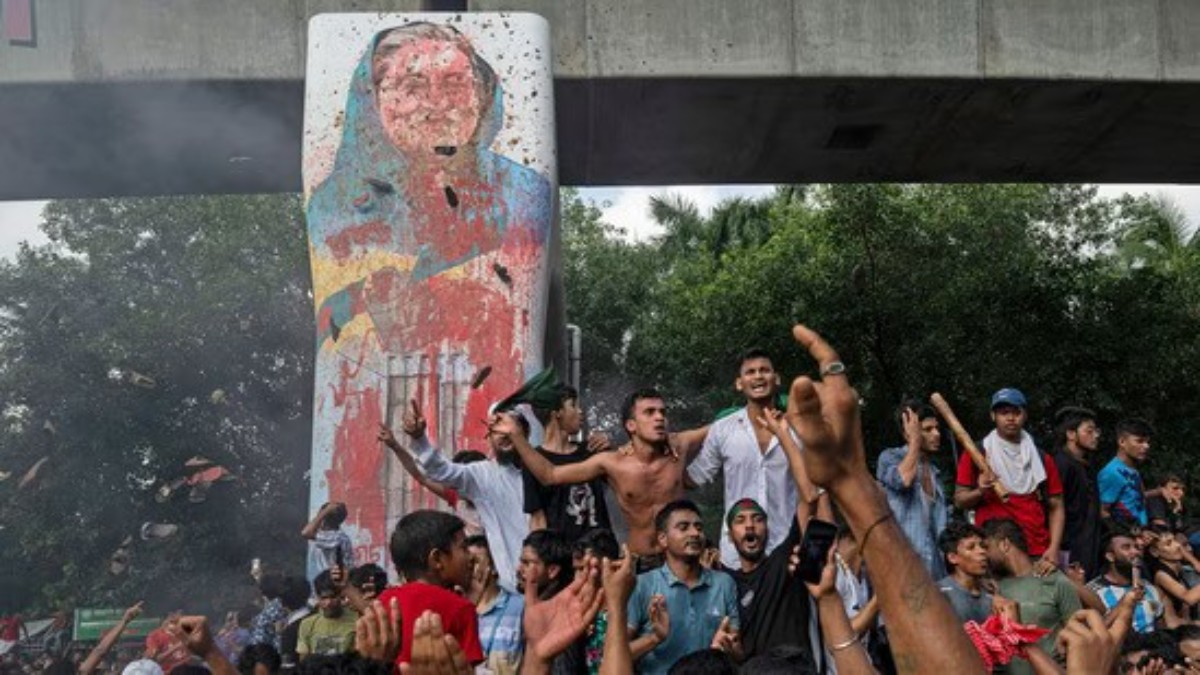There is something intrinsically hypocritical about Western diplomacy when it comes to democracy. The Americans are particularly prone to the malaise. Historically, they are comfortable conducting businesses with autocrats and dictators. There are so many anecdotal instances where American politicians and diplomats showed their wearied disgust for the deliberative system in India, but preferred the men in khaki across India’s western border and wilfully played Chinese checkers with Mao and his men.
Yet, every time an American diplomat meets an ally, especially of non-European origins, their discussion would invariably veer towards democracy, free and fair elections, and human rights.
Fareed Zakaria, in his book The Future of Freedom, mentions a similar incident surrounding then Egyptian President Hosni Mubarak. Annoyed by persistent American exhortation on democracy, Mubarak reportedly asked, “If I were to do what you ask, Islamic fundamentalists will take over Egypt. Is that what you want?” Incidentally, Mubarak was one of the first casualties of the 2010-12 Arab Spring, and he was replaced by an Islamist leadership backed by the Muslim Brotherhood. The Saudis, too, have often reminded Americans that if they pressed their government too hard, “the likely alternative to the regime is not Jeffersonian democracy by a Taliban-style theocracy”.
The current political crisis in Bangladesh seems to be the latest manifestation of the American obsession with democracy. Even a person with a cursory understanding of Bangladeshi politics will understand Sheikh Hasina, who resigned on Monday as Prime Minister, was the last person standing between democracy (howsoever distorted it may appear) and jihadism, between secularism (howsoever skewed that may be in reality) and hard-core Islamism. Minorities in Bangladesh see no future for themselves without Sheikh Hasina at the helm of affairs, with one professor from a Dhaka university coming up with a research report saying there won’t be a minority in Bangladesh in three decades if the current trend continues. Unfortunately, for Hindus, post-Hasina, things have only worsened. Already one hears Hindus being targeted across Bangladesh, and even an ISKCON temple has been vandalised.
Impact Shorts
More ShortsStraight out of CIA playbook
If anyone has seen the regime changes in South America (one is currently witnessing the making of one in Venezuela) and also ‘revolutions’ of different hues like the one in Ukraine (Orange Revolution), the Bangladesh ‘coup’ seems to have played straight out of the CIA playbook with tactical support from George Soros-like elements. So, how does this CIA-inspired ‘revolution’ play out on the ground? It all begins with the ‘Guardians of the Earth’, led by Americans, questioning the veracity of election results in a country. This will bring out a section of people in the said country, howsoever dubious they may be, to be a part of this obnoxious agenda. Soon, there would be protests, which would start on a small note. These vested internal elements would then join the agitation, which would then be flamed by CIA & Company. These foreign players would set the narrative so well that once the coup is done, the people on the ground would celebrate it, calling it a liberation.
Hasn’t Bangladesh followed the same path? In fact, to the misfortune of Sheikh Hasina, the entire controversy was not her making either. It was a judicial verdict, and not the executive decision, which brought the protesters on the street. Today, the court remains in place, but Sheikh Hasina is displaced. That’s the beauty of the CIA playbook.
This brings us to the question: What does the US gain out of displacing Sheikh Hasina? If chaos and anarchy are the objectives, then the move is spot on. Also, if the idea is to put India in a state of bother, especially after Prime Minister Narendra Modi chose to visit Moscow the day the Americans were celebrating 75 years of NATO in Washington, DC, then it, again, has hit the nail on its head. Ironically, the US may, in a Faustian bargain, handover Bangladesh to Pakistan’s ISI. And if Pakistan is around, can China be far behind? More so, when Emperor Xi Jinping was already upset with Sheikh Hasina for her India-first policy. In fact, things were so shaky that last month, Sheikh Hasina had suddenly cut short her China visit, the first in five years.
So, Bangladesh, post-Hasina, is a massive strategic-security challenge for India, especially West Bengal and the sensitive Northeast. But it is also a gigantic disadvantage for America, with Pakistan and China all set to do a tango in Dhaka. But then, those who have seen the Americans committing a hara-kiri in Ukraine, just because they wanted to fix Vladimir Putin, who in turn was forced to sit firmly on the Chinese lap, further strengthening the Chinese side, they won’t be surprised with the Dhaka move.
The Bangladesh crisis should be a wake-up call for India. The current dispensation isn’t quite liked in the West, nor is it the preferred side for Beijing and Islamabad. People like Soros have already shown their disdain for the Narendra Modi government. In this backdrop, India should be wary of, and prepared for, a CIA-like toolkit at play. They just need a protest. And there are many in India whose livelihood rests primarily on protests. The so-called farmers’ protest was contained, but post-Bangladesh jubilation, the anti-India forces may again gang up for one last pushback.
Sadly, for the US, it would again be a losing proposition, especially when China has already gathered enough wind to challenge American authority. But then, the sole superpower, of late, is prone to making wrong choices and disastrous decisions.
The views expressed in the above piece are personal and solely those of the author. They do not necessarily reflect Firstpost’s views.


)

)
)
)
)
)
)
)
)



